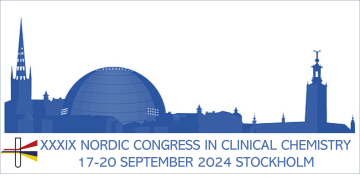Speakers
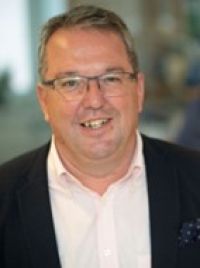
Jovan P. Antović, Professor, MD, PhD
Jovan P. Antović is a professor in coagulation & clinical chemistry and a research group leader at the department of Molecular Medicine & Surgery at Karolinska Institutet, Stockholm, Sweden. On the clinical part he is a senior consultant, medical head of coagulation diagnostics at Clinical Chemistry, Karolinska University Laboratory, Karolinska University Hospital, Stockholm, Sweden. He is also a visiting professor in hematology at Faculty of Medicine Nis and Faculty of Medicine Kragujevac in Serbia. He is a member of EQUALIS (Swedish external quality assessment for clinical laboratory investigations) expert group in coagulation. He was a co-chair of Standardization Scientific Committee on the Control of Anticoagulation, of International Society on Thrombosis & Hemostasis.
He participates in several national and international projects in the field of both thrombosis and bleeding and leads a project about global hemostatic assays in hemophilia with main focus of the research on cardiovascular status in aging patients with hemophilia. Apart that, his area of interests are microparticles and cross-talk between coagulation and inflammation as well as markers of thrombin generation and visualization of the fibrin structure. On the clinical side he is particularly interested in the improvement of the laboratory diagnostics of microangiopathies e.g heparin induced thrombocytopenia, thrombotic thrombocytopenic purpura, antiphospholipid syndrome.
He is author or co-author in more than 80 articles published in peer-review journals and co-editor of guide textbook Essential guide to coagulation (third edition in preparation). He was a member of Editorial Board of J Thromb Haemost and currently is a Review Editor on the board of Thrombosis of Frontiers in Cardiovascular Medicine.
Session(s):
Thrombotic microangiopathies - many diseases not so many tests - Wednesday 18th 13:45-15:15
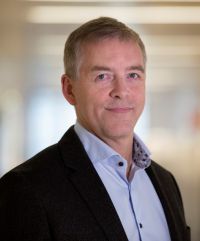
David O. Arnar, MD, PhD
Dr. Arnar is the Chief of Cardiology at Landspitali – The National University Hospital in Iceland and is a Professor at the Faculty of Medicine at the University of Iceland. He is a consultant to deCODE genetics/Amgen and an advisor to the digital therapeutics company Sidekick Health.
Dr. David O. Arnar completed his MD from the University of Iceland. He has also completed a PhD from the University of Iceland and an Executive Master of Public Health degree from the University of Reykjavik. Dr. Arnar did his postgraduate training at The University of Iowa Hospitals and Clinics in Iowa City in the United States in Internal Medicine, Cardiology and Cardiac Electrophysiology.
Dr. Arnar is the past-president of the Icelandic Society of Internal Medicine. His research interests include the genetics of arrhythmias and precision medicine. Dr. Arnar is also leading a large digital medicine research project in colloboration with Sidekick Health. He has received numerous prestigious awards for his scientific achievements.
Session(s):
New targets, new opportunities? Cardiovascular biomarkers today and tomorrow - Wednesday 18th 15:45-17:15
Valdas Banys, MD, PhD
Valdas Banys is a highly qualified medical professional specializing in Laboratory Medicine. He holds a PhD in Biomedical Sciences, earned from Vilnius University Faculty of Medicine, with a dissertation focusing on atherosclerosis and metabolic syndrome pathogenesis evaluated through new platelet and inflammation markers.
Dr. Banys has extensive experience in the field, with over 18 years of practice in various medical institutions. Currently, he serves as a Product Manager and Laboratory Medicine Physician at private network of laboratories ‘Medicina practica laboratorija’. He has held various leadership positions, including Head of Biochemistry Laboratory and Consultant at Vilnius University Hospital Santaros Klinikos.
He has also made significant contributions to academia, serving as a Lecturer and Assistant professor at Vilnius University Faculty of Medicine, teaching topics related to hemostasiology and laboratory medicine in general. His research interests encompass clinical chemistry, hemostasiology, and laboratory quality management, with several scientific publications to his name.
Valdas Banys is an active member of several professional organizations, including national Lithuanian Society of Laboratory Medicine (LLMD), EFLM, and IFCC. His hobbies include digital photography, culinary arts, and DJ-ing culture. His personal traits reflect responsibility, punctuality, honesty, and a passion for innovation.
Sessionn(s):
Session by BALM - Thursday 19th 15:45-17:15
Kristina Bengtsson Linde, MD
Kristina Bengtsson Linde is a Consultant in Emergency Medicine and Internal Medicine with more than 25 years of clinical experience, Programme director of Emergency Medicine, and holds a special interest i kognition and medical decisionmaking.
Session(s):
Session by Svensk Förening för Klinisk Kemi - Using labs wisely – laboratory medicine in an era of choosing wisely. - Friday 20th September 08:30-10:00
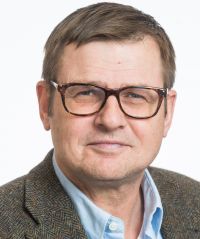
Mikael Benson, MD, PhD
Mikael Benson directs the Medical Digital Twin Research Group at the Karolinska Institute and coordinates the Swedish Digital Twin Consortium. The aims are to develop methods to construct and computationally treat high-resolution models of individual patients’ diseases in clinical practice. This is based on multi-disciplinary collaborations between experts in multi-omics down to the single cell level, network science and machine learning, in vitro and in vivo studies of mouse models, biobank and clinical studies.
A brief summary is found here: https://news.ki.se/digital-twin-allows-for-tailored-medication. A more detailed one, with publications can be found at our website: sdtc.se.
Session(s):
Predicting the unpredictable? Novel developments to personalize healthcare - Wednesday 18th September 08:30-10:00
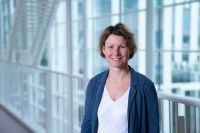
Miranda van Berkel,
Miranda van Berkel is clinical chemist at the Radboud university medical centre in Nijmegen, the Netherlands. Het main focus is chemistry and point of care. She is also the chair of the section clinical chemistry of the Dutch EQA organization, the SKML.
Session(s):
Liver diseases - an expanding medical field - Wednesday 17th September 15:45-17:15

Soheir Beshara, MD, PhD
Soheir Beshara is a senior consultant responsible for special hematology at the department of Clinical Chemistry, Karolinska University Hospital. Main research interest is erythropoeisis, inherited defects in erythrocyte membrane and enzymes as well as iron metabolism.
She is co-supervisor to PhD student with focus on iron metabolism in chronic
kidney disease. Member in the group on coagulation research in MMK, Karolinska Institutet. Board member of the Swedish Society of Medicine and Equalis.
Session(s):
Erythrocyte disorders - Wednesday 18th September 09:50-10:10
Educational session in Hematology - Wednesday 18th September 07:30-08:15
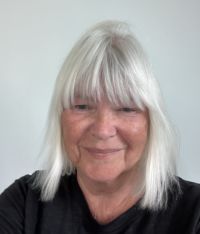
Anne-Lise Bjørke-Monsen, MD, PhD
Anne-Lise Bjørke-Monsen is a Norwegian pediatrician and a specialist in medical biochemistry.
She completed her MD from the University of Bergen and the Norwegian University of Science and Technology (NTNU) in Trondheim. She has a PhD from the University of Bergen.
She is currently working at the department of medical biochemistry at Haukeland University Hospital, Innlandet Hospital Trust and Førde Hospital Trust.
Her research has mainly been focused on changes in vitamin status, particularly B vitamins related to single carbon metabolism, trace elements and environmental pollutants in women during pregnancy and lactation and how these factors impact growth and neurodevelopment in the child
Session:
Transfer of perfluoroalkyl substances (PFAS) from the mother and associated metabolic and neurodevelopmental changes in the child. - Wednesday 18th 10:00-10:30
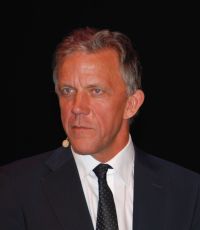
Kaj Blennow, Professor, MD, PhD
Kaj Blennow is Professor in Clinical Neurochemistry at University of Gothenburg, and Head of the Clinical Neurochemistry Lab at Sahlgrenska University Hospital, Gothenburg, Sweden. He holds a Specialist Competence in Psychaitry and in Clinical Chemsitry. His main research interest is the development of new analytical methods for CSF and blood biomarkers for AD and other brain disorders, and the application of these to increase the understanding of AD pathophysiology, as well as for screening, diagnostics and for therapy monitoring in clinical trials. Dr. Blennow has published more than 2000 original research papers and review articles in peer-reviewed journals, with more than 145.000 citations, and he has an H-index of 175. He is President of the Society for CSF analysis and Clinical Neurochemistry and head of the Alzheimer’s Association QC program for CSF and blood biomarkers.
Session(s):
Plenary session on Neurodegenerative disease: Fluid biomarkers for Alzheimer’s – finding the place of blood and CSF tests at the memory clinic and in the clinical chemistry lab - Thursday 19th September 11:15-12:00
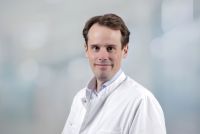
Martin de Borst, Professor, MD, PhD
Martin de Borst is consultant nephrologist at the University Medical Center Groningen and full professor of medicine at the University of Groningen, The Netherlands.
Prof. De Borst’s research focuses on cardio-renal medicine: the interaction between chronic kidney disease and cardiovascular disease. His main scientific aim is to identify targetable factors and innovative treatments to detect and prevent progressive kidney function loss and cardiovascular disease. So far, he has published >300 peer-reviewed articles that have been cited >10,000 times. In 2020, he received the Stanley Shaldon award for young investigators from the European Renal Association (ERA). In 2024, he received an European Research Council (ERC) consolidator grant to develop innovative new approaches to detect kidney damage at an earlier stage by developing multi-omics based machine learning algorithms.
Prof. De Borst is honorary fellow of the European Renal Association (ERA). He is former Associate Editor and current editorial board member of Nephrology Dialysis Transplantation, the society’s flagship scientific journal, and is board member of the ERA CKD-MBD working group. He participates in various scientific organizations and advisory boards such as the Scientific Councils of the Dutch Kidney Foundation and the Dutch Federation for Nephrology.
Session(s):
Kidney function measurement – what is needed in clinical practice? - Tuesday 17th September 15:30-17:15
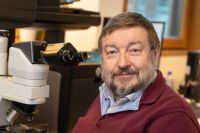
Lars Björndahl, Associate Professor, MD, PhD
Basic medical training at Karolinska Institutet 1976-82, PhD studies 1982-1986: thesis On Sperm Nuclear Zinc and Chromatin Decondensation. Swedish Licensed Physician (1990) and specialist in Clinical Chemistry 1992. Participated in the establishment and development of a new Andrology Laboratory at the Karolinska University Hospital 1987-2000. In 2001-2005 at Birmingham Women’s Hospital and University of Birmingham as Scientist in Human Reproductive Biology and Honorary Senior Lecturer. In 2010 Senior Consultant Physician at the Centre for Andrology and Sexual Medicine (CASM) at the Karolinska University Hospital. In 2013 Director of the Andrology Laboratory and Tissue Establishment of CASM, later ANOVA.
Member of the WHO editorial committee for the Semen Analysis Manual, 5th edition (2005-10) and Chief Editor of the 6th edition (2018-2021); consultant for the WHO Infertility Global Guidelines and Research Group (2012-2019). Project Leader for the Basic Semen Examination standard ISO 23162 (2017-2021). In 2010-14 Associate Editor of Human Reproduction, Associate Editor (2019-2022) of Human Reproduction Update and (2019-) Andrology. Many publications concerning quality in basic semen examination. Involved in studies on AI in basic semen examination, basic studies involving human spermatozoa as well as development of clinically useful assessment of male reproductive functions.
Chairman of the Technical Committee 331 – Medical Diagnostics - of the Swedish Institutet for Standards (www.sis.se).
Session(s):
Development & Improvement track: External quality assessment in laboratory medicine: what, how and why - Thursday 19th September 14:30-15:15
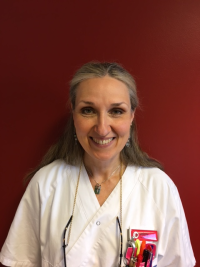
Jenny Borrman, Biomed lab scientist
Jenny Borrman, a 54 year old (young) biomedical scientist living and working in Västerås Sweden.
I started as a assistant nurse working at the medical clinic helping patients with leukemia for a couple of years before my career as a biomedical scientist. Now it´s 26 years in the ”laboratoryworld”. 22 of them at the clinical chemistry unit and 4 of them where I work now at the Specialty chemistry unit working, among other things, with S/U-proteinelectrophoresis assessment. I started my education with the assessment in year 2020 and april 2021 I could release the results by myself. I´m proud and honored to have this delegation as a biomedical scientist.
Session(s):
Development & Improvement track: Career and competence in laboratory medicine: challenges, trends and best practices - Friday 20th September 08:30-10:00
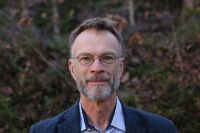
Ola Bratt, Professor, MD, PhD
Ola Bratt is Professor of Clinical Cancer Epidemiology at the University of Gothenburg, Sweden, and a consultant urological surgeon at the Prostate Cancer Centre at Sahlgrenska University Hospital in Gothenburg. He is the chairman of the National Working Group for Organised Prostate Cancer Testing, and the Swedish Consortium for Research on Organised Prostate Cancer Testing (SweCROPT). He is a committee member of the EU funded PRAISE-U programme that implements prostate cancer screening pilot projects in several European countries.
Bratt was a member of the National Board of Health and Welfare’s expert group that in 2012 to 2014 established principles and criteria for the evaluation of national screening programmes. He chaired the Board’s expert group that in 2016 to 2018 evaluated a proposal for a national screening programme for prostate cancer.
Session(s):
Nordic screening and testing programs- Wednesday 18th September 08:30-10:00
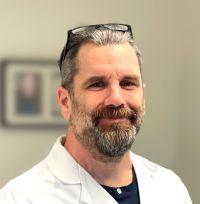
Janne Cadamuro, Associate Professor, MD, PhD
Dr. Janne Cadamuro is an Associate Professor at Paracelsus Medical University in Salzburg. He is currently serving as supplemental head of the Department of Laboratory Medicine of the University Hospital Salzburg, Paracelsus Medical University.
Dr. Cadamuro actively participates in the European Federation of Laboratory Medicine (EFLM) as chair of the Preanalytical Working Group and member of the postanalytical and expert consultant of the AI working group.
Session(s):
Session by NFKK: Recommendations from The Nordic preanalytical scientific working group - Tuesday 17th September 15:30-17:15
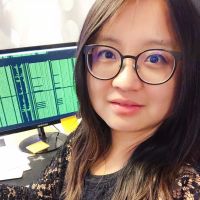
Ping Chen, Associate Professor, PhD
Dr. Ping Chen leads a research group at Karolinska Institutet in Sweden and the University of Helsinki in Finland. She is a computational biologist, dedicated to bridging the gap between data science and medical research. Her group is deeply engaged in data-driven research on human metabolic diseases and cancers, encompassing both computational method development and in-depth mechanistic studies using advanced multi-omics technologies.
Session(s):
Education session Unlocking the secrets of life through the power of data and bioinformatics- Friday 20th September 07:30-08:15
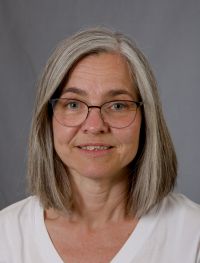
Åsa Claesson, Biomed lab scientist
I began my professional career as a biomedical analyst, formerly known as a laboratory assistant, focusing on clinical chemistry. My journey continued within transfusion medicine and healthcare laboratories, where I eventually advanced to the role of quality manager for accredited primary care laboratories. This experience in laboratory medicine ultimately led me to Swedac, where since September 2018, I have held a central position as an assessment manager. In my current role, I primarily focus on medical laboratories but also have responsibility for the "providers of proficiency testing" control form according to standard 17043 and Swedac's policy for flexible scope.
The knowledge and experiences I have gathered over the years within the laboratory field and its interfaces have enriched me with insights into the complexity of humanity and organizational structure. I strive to integrate these insights into all aspects of my life.
Session(s):
Development & Improvement track: External quality assessment in laboratory medicine: what, how and why - Thursday 19th September 15:45-17:15
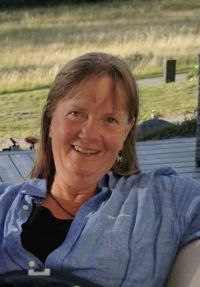
Agneta Collberg, Biomedical Analyst
I have worked in clinical chemistry for 34 years. My heart beats for teaching, and I gladly share my experiences with my colleagues.
As I have found that many have difficulty assessing various test results in relation to each other, I have developed this educational model where we discuss how to approach this together. How do the different analyses influence each other? What patterns can I identify?
My area of specialization is urine sediment. I also teach medical students and specialist nurses in clinical chemistry.
Session(s):
Development & Improvement track: Career and competence in laboratory medicine: challenges, trends and best practices- Friday 20th September 08:30-10:00
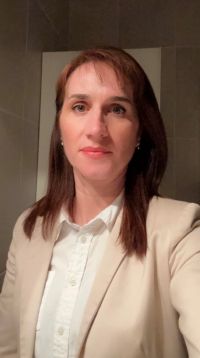
Merita Dajaku, MSc
I am a goal-oriented and driven biomedical chemist with a Master’s degree in my field. Early in my career, I developed a strong interest in both medicine and chemistry, which has driven my professional choices. After completing my thesis focused on laboratory medicine, I contributed my expertise to various laboratory environments, serving as a hospital chemist, lab engineer, and quality engineer.
I briefly ventured into the private sector as an HSE-officer but quickly realized that what truly motivates me is working in medicine and quality.
Today, I work as an assessment leader at Swedac, a place where I can develop my passion for these areas. I have also had the honor of leading the work with the new standard ISO 15189:2022, which has taken me to both national and international meetings and given me the chance to exchange knowledge as well as the opportunity to meet many inspiring individuals.
Session(s):
Development & Improvement track: External quality assessment in laboratory medicine: what, how and why - Thursday 19th September 15:45-17:15
Gösta Eggersten, Professor Emiritus, MD, PhD
MD in 1977. PhD in 1984 at Uppsala University concerning the structure and function of the complement system. Postdoctoral research fellow 1985-1986 at Scripps Clinical and Research Foundation in San Diego, CA, USA.
Since 1987 working at the Clinical chemical laboratory at Karolinska University Hospital. Senior consultant since 1995.
Visiting scientist in 1999 at the University of Texas Southwestern Medical Center, Dallas, USA.
Professor in clinical chemistry, especially dyslipidemias 2006-2014.
Professor em. since 2014.
Major scientific areas:
Biochemical approaches concerning lipid metabolism and atherosclerosis
Metabolic and genetic aspects of lipoproteins in health and disease.
Regulation and characterization of bile acid and cholesterol metabolism
Biochemical markers in diagnosis of liver diseases (HCC, NAFLD)
Utilization of molecular biology techniques in diagnostics of genetic diseases.
Teaching experiences
Training of medical students and technician students in Clinical Chemistry
Arranging and teaching on courses for research training concerning molecular biology and cardiovascular diseases.
Teaching in clinical chemistry for general practitioners
Session(s):
Educational session Dyslipidemia – selected case discussion- Wednesday 18th September 07:30-08:15
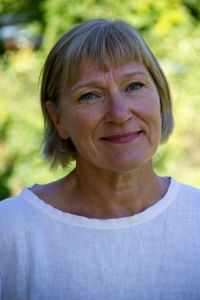
Anneli Eriksson, PhD, Research Specialist
Anneli Eriksson works as a research specialist in the research group Global Disaster Medicine - Health Needs and Response at the Department of Global Public Health (Karolinska Institute).
Within the research area global disaster medicine, She focuses particularly on needs assessment, methods for measuring and predicting disaster medicine needs, and evaluation of disaster medicine interventions. She is also programme director of the Erasmus Mundus Master's programme Public Health in Disasters.
In 2020, Eriksson defended her doctoral thesis at the University of Bergen and also holds a Master in International Health.
She is a nurse, specialised in anaesthesia care and have worked with Médecins Sans Frontières (MSF) since 1995. She has worked on missions in several countries, including in several Ebola outbreaks in West and East Africa, and has served as President of MSF Sweden. She also conducts evaluations of MSF's medical projects.
Her research focuses on ways to predict and measure the severity and needs in different disasters (needs assessment).
Currently, she is working on the research project Societies at Risk, which is led by Uppsala University and is a collaboration between seven Swedish and foreign universities. The project studies how societies are affected by conflict, focusing on economy, health, socio-psychological factors, access to water, forced displacement and political institutions. Her main focus is on health in conflicts.
She teaches topics as:
- Public Health in Disasters
- Actors and Priorities in Disaster Response
- Evaluation of Humanitarian Assistance
Session(s):
In times of crisis: what health needs and response? - Wednesday 18th September 13:45-15:15
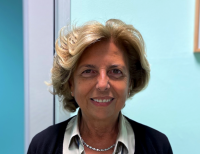
Anna Falanga, Professor, MD
Anna Falanga is a professor of Hematology at University of Milan Bicocca and Consultant of Thrombosis and Hemostasis at Hospital Papa Giovanni XXIII, in Bergamo, Italy. She has authored more than 320 publications and is guest editor of 23 volumes. She is an expert in the field of cancer and thrombosis and for her experience is a panel member and co-chair of the Guidelines on prophylaxis and treatment of venous thromboembolism in patients with cancer for the Italian Society of Medical Oncology, the American Society of Clinical Oncology, and the European Society of Medical Oncology.
Anna Falanga has an active role in several professional societies, including the International Society of Thrombosis and Haemostasis (ISTH), the European Hematology Association (EHA), the Italian Society of Thrombosis and Hemostasis (SISET), the Italian Society of Hematology (SIE).
She received the BACH Investigator Award of the ISTH (2009), and the “Harold R. Roberts Medal 2015” of the SSC of ISTH (2015).
Anna Falanga is the organizer of 12 editions of the biennial International Conferences on “Thrombosis and Hemostasis Issues in Cancer” (ICTHIC), in Bergamo, Italy, and is co-editor-in-chief of the online ICTHIC magazine.
Session(s):
Laboratory and cancer associated thrombosis (CAT) - where we are - Thursday 19th September 13:45-15:15
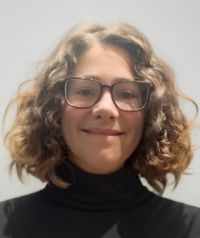
Maria Farm, MD, PhD
Maria Farm is a senior physician responsible for routine cogulation assays and point-of care analyses at Karolinska University Hospital. Responsible for national analysis for the colorectal cancer screening program. Active research within the field of thrombosis and hemostasis in the group on coagulation research in MMK, Karolinska Institutet. Board member of the Swedish Society of Thrombosis and Hemostasis (SSTH).
Session(s):
Thrombotic microangiopathies - many diseases not so many tests - Wednesday 18th September 13:45-15:15
Educational session in Coagulation - Friday 20th September 07:30-08:15
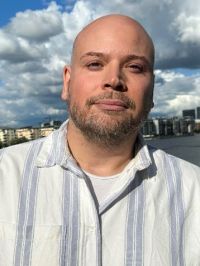
Magnus Flodberg, RN, CCN, MSc
Managing Director Wellness center, Human Resources, Karolinska University Hospital
Magnus Flodberg is a registered Nurse, CCN, MSc nursing and MSc in medical management. Magnus has worked at Karolinska University Hospital for 23½ years of which the last 13 years as a leader/manager, since April 2022 the managing director of the Wellness Center. The Wellness center´s focus is work environment, staff rehabilitation, ergonomics and health pedagogy.
Session(s):
Development & Improvement track: Healthy Workplaces, Healthy Workers: Tips and Tricks for Lab Pros - Wednesday 18th September 15:45-17:15
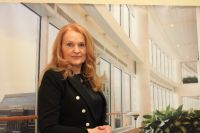
Vesna Garovic, Professor, MD
Dr. Garovic is Professor of Medicine, Division of Nephrology and Hypertension at Mayo Clinic in Rochester, Minnesota, and holds a joint appointment in the Department of Obstetrics & Gynecology. She serves as Chair of the Division of Nephrology and Hypertension, Vice-Chair for Research, Department of Internal Medicine, Director, Mayo Clinic Center for Clinical and Translational Science, and Dean for Clinical and Translational Science across the Mayo Clinic Enterprise. She has been NIH-funded over the last 15 years and has published over 200 peer-reviewed papers. Her clinical and research interests in hypertension, in general, and hypertensive pregnancy disorders, in particular, span several research areas: diagnosis and treatment, underlying molecular mechanisms, with a recent focus on senescence, epigenetics, and epidemiology of cardiovascular and renal complications. She is a chartered member of the Pregnancy and Neonatology NIH Study Section (2020-2024) and a member of the AHA Hypertension and Kidney in Cardiovascular Disease Science Subcommittee 2018-to date. Dr. Garovic was appointed by the AHA as the chair of the writing group of the scientific statement on “Hypertension in pregnancy: diagnosis, blood pressure goals, and pharmacotherapy” (Hypertension, 2022), with participation of 6 AHA Councils. She is the recipient of The Marvin Moser Clinical Hypertension Award from the AHA and The Council on Hypertension for 2022. She is the Penske Foundation Named Professor of Clinical Medicine in Honor of Ian D. Hay, M.D., Ph.D., and J. Eileen Hay, M.B., Ch.B.
Session(s):
The Margareta Blombäck plenary session on Coagulation: Thrombotic Micropangiopathies (TMA) - many diseases not so many tests- Special Focus om Preeclampsia - Tuesday 17th September 11:15-12:00

Stefan Gaunitz, PhD, medical laboratory scientist
Stefan Gaunitz (SG) is a medical laboratory scientist at Chromatography, Clinical Chemistry, MDK, Karolinska University Hospital, Stockholm, Sweden.
Stefan Gaunitz studied molecular biology at Södertörn University and defended his PhD thesis entitled “Studies on O-glycosylation of recombinant mucin-like proteins and their binding to antibodies, bacterial toxins and viral receptors.” at Department of Laboratory Medicine, Karolinska Institute, 2013.
Dr Gaunitz did a postdoc at the Karolinska Institute Alzheimer Disease Research Center, Huddinge, specializing in glycan profiling of Alzheimer disease cerebrospinal fluid (CSF) with nano-LC-MS 2013-2016. A second postdoc was conducted at the Chemistry Department of Indiana University 2016-2018 where he specialized in advanced chromatography and mass spectrometry of glycans and glycoproteins derived from urinary exosomes. His last postdoc was at the Department of Chemistry at the Royal Institute of Technology (KTH) 2018-2020 where he conducted structural elucidation of hemicellulose with LC-MS.
Stefan Gaunitz currently holds a position as medical laboratory scientist at Chromatography, Clinical Chemistry at Karolinska University Hospital where is developing and maintaining LC- and LC-MS based clinical analytical methods with a special interest in clinical glycomics.
Sessions(s):
Blood biomarkers - A new era for diagnosing Alzheimer disease?- Thursday 19th September 13:45-15:15
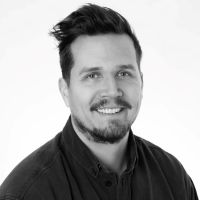
Jon Gunnarsson Ruthman, RN, BSc, MA/MTh
Nurse, Medical Team Leader and former board member Doctors Without Borders Sweden
Jon has been in the humanitarian field for over 10 years with experience from conflicts and crisis ranging from Ebola, measles, non-communicable diseases and trauma. He has worked in contexts like Democratic Republic of Congo, Pakistan and Jordan among others. He has also worked as an advisor for Swedish Red Cross and lectures at Uppsala university at the master program International Humanitarian Action.
Session(s):
Development & Improvement track: Laboratory Medicine in times of crisis - Wednesday 18th September 13:45-15:15
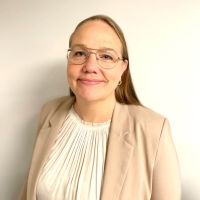
Åsa Gyberg, reg. Biomedical laboratory scientist
I am a reg. Biomedical laboratory scientist since year 2000. My fields of expertise are transfusion medicine and quality assurance, also digitalization and ethics. I hold my current position as administrative manager and business developer within digitalization at a Swedish national board since October 2023. Between year 2020 and until my current position I worked as an eHealth Strategist at the Department of Digitalization, Region Blekinge, Sweden. During the Corona pandemic a great part of my work was to project manage the extended testing of covid-19 in Blekinge county. I combine my work studying for a Master Degree of Science with specialization in eHealth, main field Health Informatics as well as teaching Laboratory Informatics at Linnæus University, Sweden.
Ethics and professional development are areas of special interest. I am a member of the Ethics Committee of the Swedish Institute of Biomedical Laboratory Science and the Swedish National Council on Medical Ethics (Smer). I am co-author of a number of articles on ethics.
Session(s):
Session by Institutet för biomedicinsk laboratorievetenskap - Wednesday 18th September 13:45-15:15
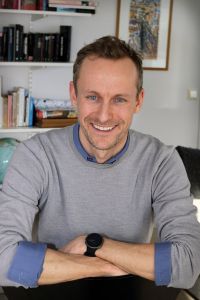
Hannes Hagström, Adjunct Professor, MD, PhD
Hannes Hagström is professor of gastroenterology and hepatology, and consultant in hepatology at Karolinska University Hospital. His main focus is liver-related epidemiology, with a specific interest in steatotic liver disease. Key questions that his group focuses on include long-term outcomes of steatotic liver disease, now the most common chronic liver disease with a global prevalence of more than 30%. An aim is to identify risk factors for disease progression. Hagström have been instrumental in developing one of the globally largest cohorts of patients with steatotic liver disease. His group use a combination of well-phenotyped patient cohorts with large-scale epidemiology, and have several collaborations with basic scientists and international colleagues. Some current initiatives includes the Fatty Liver In Sweden multi-center cohort of longitudinally examined patients, and the screening initiative SCANDIA where 1000 patients with type 2 diabetes have been screened for presence and severity of steatotic liver disease.
Session(s):
Liver diseases - an expanding medical field - Wednesday 18th September 15:45-17:15
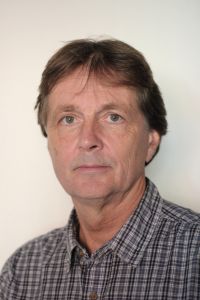
Anders Helander, PhD
Anders Helander received his PhD in biochemistry and physiology at Uppsala University in 1988. He then started a new alcohol diagnostic laboratory facility at the Stockholm County Council which he ran until 2010 when it was incorporated into the Karolinska University Laboratory, where he is still active. He became associate professor in biochemical alcohol research at the Department of Clinical Neuroscience at Karolinska Institutet (KI) and later adjunct professor in addiction research at the Department of Laboratory Medicine. Anders Helander has been responsible for the analysis of alcohol biomarkers in a WHO/ISBRA Study on state and trait markers of alcohol use and dependence, he was the first chairman of an IFCC Working Group on international standardization of the alcohol biomarker carbohydrate-deficient transferrin (CDT), and led the Swedish STRIDA project which focused on problems and health risks linked to new psychoactive substances (NPS; "internet or designer drugs"). Anders Helander has published more than 200 original publications and several reviews and book chapters on the development, analysis, clinical and forensic applications, and standardization of laboratory tests for alcohol, traditional drugs of abuse and NPS. He is also a frequent lecturer in the same fields.
Session(s):
Alcohol and drug testing – new substances and new analytical problems - Wednesday 18th September 10:30-11:00
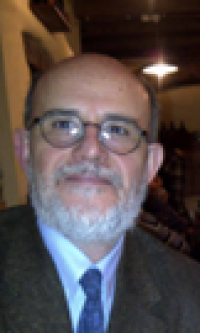
Achille Iolascon, Professor MD, PhD
Achille Iolascon is Professor of Medical Genetics, Director of the Residency School of Medical Genetics at the University of Naples Federico II, Director of Clinical Medical Genetics at Azienda Ospedaliera Universitaria Federico II and Head of Laboratory at CEINGE Biotecnologie Avanzate in Naples, Italy. His expertise encompasses the clinical and molecular genetics of rare hereditary disorders, hereditary anemias, and neuroblastoma. They are proficient in clinical genetics, molecular genetics, cancer genetics, NGS analysis, genome editing, clinical trials, and drug discovery. As an educator, Prof. Iolascon has served as a Full Professor of Medical Genetics, guiding numerous postgraduate students and leading research teams. Their editorial contributions include serving as an Associate Editor for American journal of Hematology, Scientific reports, Frontiers in Phisiology,Frontiers in Genetics and Genes. Prof. Iolascon has been honored with numerous grants and appointments, including serving as President of the Italian Society of Human Genetics. Their research has resulted in over 400 publications, with a notable H-index of 65.
Session(s):
Erytrocyte disorders - Wednesday 18th September 08:30-10:00

Linus Jönsson, Professor, MD, PhD
Linus Jönsson is Professor of Health Economics at the Karolinska Institute, Sweden. He graduated with a medical degree from Uppsala University in 2000 and a Master of Economics and Business Administration from Stockholm School of Economics in 2001. In 2003 he earned a PhD from Karolinska Institutet, he became a licensed physician in 2004 and docent in 2019. He has previously worked with commissioned health economics research and in the pharmaceutical industry. His research focuses on health technology assessment and economic evaluation in a range of disease areas but with particular interest in Alzheimer’s disease and other neurodegenerative disorders. Dr Jönsson has authored of over 100 original publications, reviews and book chapters. He is member of the Swedish government research council on elderly care and has served as scientific advisor to the Swedish National Board on Health and Welfare. Dr Jönsson coordinates several national, European research collaborations including PREDEM, IHI-PROMINENT and IPECAD (the International Pharmacoeconomic Consortium on Alzheimer’s Disease). He has taught courses in health economics, observational research methodology and decision analysis at the Stockholm School of Economics, Karolinska Institutet, Copenhagen University and International Society for PharmacoEconomics and Outcomes Research (ISPOR).
Session(s):
Blood biomarkers - A new era for diagnosing Alzheimer disease? - Thursday 19th September 13:45-15:15
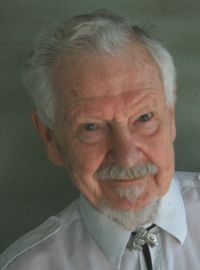
Anders Kallner MSc, MD, PhD
Anders Kallner, retired since long, is a clinical chemist who embarked on a winding path in natural sciences during the first half of the last century with a romantic dream of becoming a forester and veterinarian. That dream evaporated facing reality and he obtained an MSc in chemistry at the Stockholm University and Royal Institute of Technology under prof Holger Erdtman in 1957 and continued to the Karolinska Institutet and medicine. Inspired by prof Erik Jorpes and Sune Bergström he presented his PhD dissertation “Synthesis and Metabolism of allo bile acids” in 1968, was appointed Docent and became an MD. He focused on clinical chemistry with profs Sven Lindstedt and Carl-Henric de Verdier as mentors and was close to Dr René Dybkaer, worked at several country hospitals and finally settled at the Karolinska Hospital. Participated in the design and management of the first SAAB LIS that was installed at Huddinge. He was professor of clinical chemistry at Serafimerlasarettet from 1972 until it closed in 1974 and continued as a senior consultant and lecturer at Huddinge and Karolinska hospitals until retirement.
During the 1980-ies active in IFCC and served as vice President 1986-1990 and later in IUPAC, where he was Secretary and President of the Division of Chemistry and Human Health and became a Member of the Bureau and the Executive Committee. He worked on several committees in EU, and ISO, and as a consultant to CLSI, establishing standards for the accreditation of laboratories, and as a consultant to WHO in the Middle East. The collapse of the Soviet Union opened possibilities to support colleagues in the Baltic. He was instrumental in founding the BALM, the Baltic Association of Laboratory Medicine.
Major research fields were Vitamin C metabolism, Method design, development and evaluation, Quality assurance, and Statistics, published in more than 200 peer-reviewed publications. The legacy of the wildlife dreams is publications on the sculpin and the influence of Surströmming on human microbiota.
He has published books on Organic Chemistry for medical students, and Laboratory Statistics published by Elsevier in two editions, and developed dedicated software for method validation and verification – patented in the Russian Federation and freely available at the UK ACBLM. For many years he ran annual courses in statistics for physicians and laboratory staff together with prof Elvar Theodorsson. He is a co-editor of the Scandinavian Journal of Clinical and Laboratory Investigation and the founder and editor of a social-professional internet platform in laboratory medicine for the Nordic and Baltic countries. This is the survival of the reference journal Clinical Chemistry Lookout (CCL) that he published together with a group of colleagues 1975-1998.
He is associated with the MMK of Karolinska institutet and recognized by the Department of Laboratory Medicine at the Karolinska University hospital. He is Honorary member of the SFKK and the BALM
Session(s):
Development & Improvement track: Clinical chemistry through the ages: milestones, discoveries and innovations - Tuesday 17th September 15:45-17:15
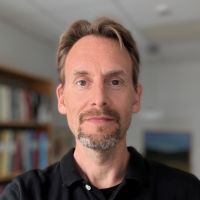
Mattias Karlman, MD
Mattias Karlman is a specialist in Clinical Chemistry and Assistant Operations Manager at Laboratory Medicine Västmanland. He has been involved in the education of laboratory personnel in Sweden since many years, for example by taking part in the arrangement of the national course in Clinical Chemistry and Endocrinology for junior doctors. He is also a member of Equalis advisory group for Endocrinology.
Session(s):
Educational session - Analytical interference in Clinical chemistry - Friday 20th September 07:30-08:15
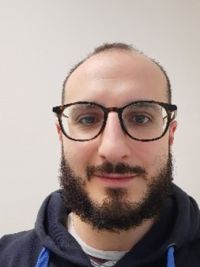
Adrian Kimiaei, MD
Adrian Kimiaei obtained his medical degree at Karolinska Institute and is now a specialist in training in Clinical Chemistry at Karolinska University Hospital. He is also a PhD candidate at the Dept of Molecular Medicine and Surgery at Karolinska Institute, with the subject of the thesis being novel biomarkers for diagnosing and prognosticating von Willebrand Disease. He is also engaged in the education of medical students with a focus on analysis interpretation and test performance.
Session(s):
Thrombotic microangiopathies - many diseases not so many tests - Wednesday 18th September 13:45-15:15
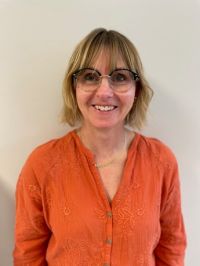
Maria Kjellén, BSc
Maria Kjellén is a biomedical scientist working at Laboratoriemedicin Västmanland at Västerås hospital since 2002.
She has work experience from small health centers to hospital laboratories both chemistry and microbiology since 1991.
Maria was process manager for Special Chemistry in 2008 to 2018 working with methods for protein electrophoresis, liquid chromatography and mass spectrometry at Västerås hospital.
In Västmanland it is a tradition that biomedical scientists are educated in answering protein electrophoresis and in 2015 Maria started her education and has since then independently assessed and answered both serum and urine electrophoresis.
Since 2018 Maria has combined work as biomedical scientist with an assignment as system administrator for the laboratory information system (LIS).
Session(s):
Development & Improvement track: Career and competence in laboratory medicine: challenges, trends and best practices - Friday 20th September 08:30-10:00
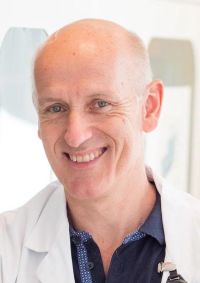
Olav Klingenberg, Associate professor, MD, PhD
Olav Klingenberg was born in 1961 in Oslo where he graduated medical school in 1988 and took a PhD in 1999. He held various positions at Department of Medical Biochemistry at Oslo University Hospital from 2001 and was approved specialist in medical biochemistry in 2004. From 2019, he has acted as head of department. For the last ten years, he has taught medical students as associate professor at University of Oslo, and supervised research in laboratory medicine. In addition, since 2008 he has taken an active part in scientific publishing as editorial secretary in Scandinavian Journal of Clinical & Laboratory Investigation.
Session(s):
Erythrocyte disorders- Wednesday 18th September 08:30-10:00
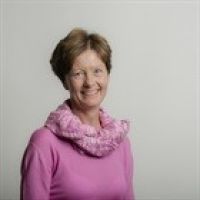
Gunn B B Kristensen, PhD
I have been employed in Noklus (The Norwegian Quality Improvement of laboratory examinations) since 2017 as the leader of section for Hospital laboratories, and as an academic coordinator since 2023. Noklus offer quality improvement of medical laboratory services to the entire Norwegian health care, in primary as well as in secondary care.
Biomedical Laboratory Scientist, Haukeland University Hospital, Bergen Norway, 1978
Dissertation for the degree of philosophiae doctor (PhD), University of Bergen, Norway, 2008. Thesis: Self Monitoring of Blood Glucose; Aspects of Analytical quality.
I am engaged in different research project within the research area of laboratory medicine and analytical quality. As a member of the preanalytical working group in European Federation of Clinical Chemistry and Laboratory Medicine (EFLM.) I have been involved in studies to harmonize and improve the quality of the preanalytical phase of the total testing process. Through the Nordic cooperation in External Quality Assurance, EQAnord (where Labquality is a member), different projects have been initiated and performed. The last one was the Nordic Hemolytic study where the aim was to update information on the effect of hemolysis on analytical performance and how hemolyzed samples are handled in the laboratories in the Nordic countries. In a project performed in 2013, the aim was to evaluate method differences for five components analyzed by immunoassays; explore if the use of method dependent reference intervals may compensate for method differences and investigate commutability of EQA materials. Another important project has been the development of a flowchart to handle deviating EQA-results. This project started in 2010 and has been a topic during the years at several EQAnord meetings. I have been involved in developing Noklus EQA program for quality indicators for hospital laboratories in Norway and been in charge of the program since 2018.
Session(s):
Session by NFKK: Recommendations from The Nordic preanalytical scientific working group - Tuesday 17th September 15:45-17:15
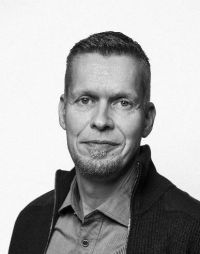
Janne Lehtiö, PhD, Professor
Professor in Medical Proteomics at Karolinska Institutet
Scientific Precsion Medicine lead, Science for Life Laboratory and Swedish National Data Driven Life Science program
Head of Clinical Proteomics Unit, Karolinska Univ. Hospital
Janne Lehtiö has MSc degree from Helsinki University, Finland and PhD in engineering at Royal Institute of Technology (KTH) in Stockholm, Sweden. Post the PhD, Lehtiö worked a few years in biotech industry in USA and Europe; and obtained his postdoctoral experience in cancer research at Karolinska Institutet, Stockholm, Sweden. In 2015, he was selected to faculty Professor position at Karolinska Institutet and since 2021 holds shared clinical professor position at Karolinska univ. hospital heading cancer proteomics unit. Lehtiö is pointed as visiting professors at InFlames flagship program on immunology at University of Turku, Finland.
Lehtiö-labs major research focus in on proteome analysis, systems biology and cancer precision medicine. He’s lab is working from methods development to clinical applications mainly focusing on lung and breast cancer as well as in leukaemia research.
Lehtiö has also vast experience on research infrastructures, from heading core facilities and national infrastructure initiatives to expert assignments in the field of technology driven personalized medicine. Between 2018-2023 Lehtiö serves, as Scientific Director for SciLifeLab, Sweden’s national bioscience infrastructure and is engaged in SciLifeLab-KAW Data Driven Life Science program as steering group member and precision medicine area-lead. He also serves in Karolinska Comprehensive Cancer Center board of directors and scientific advisory boards for national infrastructures in both Finland (Biocenter Finland) and Norway (NAPI) as well as Cancer Core Europe. Lehtiö is member of Nobel Assembly at Karolinska Institutet warding Nobel Prize in Medicine or Physiology
Session(s):
Proteomics for diagnosing disease- Thursday 19th September 10:30-11:00
Angelica Lindén Hirschberg, Professor
Dr. Angelica Lindén Hirschberg is Professor of Obstetrics and Gynecology at the Department of Women’s and Children’s Health, Karolinska Institutet, Stockholm, Sweden. She is Head of the Women´s Health Research Unit and a Consultant Gynecologist in charge of Gynecological Endocrinology at the Karolinska University Hospital, Stockholm, Sweden. Her research is focused on gynecological endocrinology and reproductive and metabolic health in fertile age women as well as postmenopausal women. Professor Hirschberg is a fellow of the Endocrine Society and Androgen Excess and PCOS Society (AE-PCOS), a member of the board of the International Society of Gynecological Endocrinology (ISGE), President of the European Menopause and Andropause Society (EMAS), editor for the international journal Maturitas, and a member of the editorial board of Gynecological Endocrinology, the official journal of ISGE, and of the Journal of Clinical Endocrinology and Metabolism (JCEM). She is also the official gynecologist of the Swedish Olympic Teams, medical advisor to World Athletics and the International Olympic Committee (IOC). She was awarded the 2016 Grand Prize in Sport Science. In 2009 Professor Hirschberg was appointed a Physician-in-Attendance to the Swedish Royal Family and she was awarded the King’s Seraphim Medal, 8th size, in 2018.
Session(s):
Session by the Swedish Association of Clinical Biochemists - Clinical importance of measurements of low levels of sex hormones - Thursday 19th September 08:30-10:00
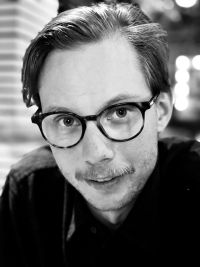
August Lundholm, MSc
August Lundholm is a molecular biologist responsible for molecular diagnostics at the department of Clinial Chemistry, Karolinska University Hospital. Main research interest is inherited defects in erythrocyte membrane.
Session(s):
Erythrocyte disorders - Wednesday 18th September 10:10-10:30
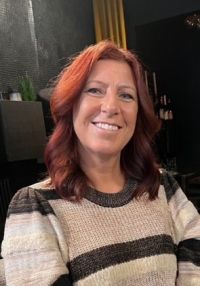
Åse Malmenklev
Occupational health and safety specialist at Karolinska University Hospital, Stockholm, Sweden since 2022.
Åse Malmenklev has degree in work environment law, labor law, Human Resource Accounting, leadership and in project management. She also has education in Six Sigma. Åse has 20 years’ experience in working with work environment and HR. She has worked in the automotive industry, the paper industry, within an organization who works with people who have a functional variation and now within government. Due to this she has gained a broad knowledge within the work environment and labor law.
Session(s):
Development & Improvement track: Healthy Workplaces, Healthy Workers: Tips and Tricks for Lab Pros - Wednesday 18th September 15:45-17:15
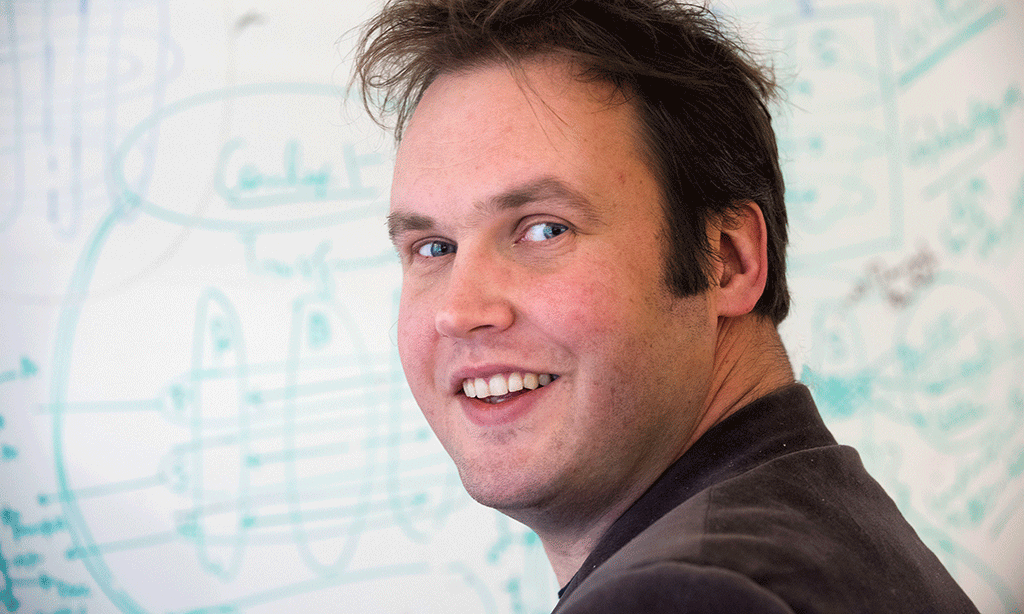
Sebastiaan Meijer, Professor, PhD
Prof.dr.ir. Sebastiaan Meijer is full professor of Health Care Logistics at KTH Royal Institute of Technology, Stockholm, Sweden and head of the department of Biomedical Engineering and Health Systems. He serves as vice-dean for the School of Engineering Sciences in Chemistry, Biotechnology and Health at KTH. His main interests are in
design methods for such systems, and how different methodologies shape decisions by authorities that manage complex multi-layered organizations and loosely coupled services. Gaming simulation in this sense is used for hypothesis testing, studying behaviour, knowledge and cognition, and designing new practices and procedures. Validity aspects of this type of research are his special interest, as well as multi-method simulation.
Sebas received his PhD from Wageningen University in 2009, for which thesis he won the Special Category of the Deutscher Planspielpreis 2010 for best European PhD dissertation on gaming methodology. He was honorary visiting professor at IIIT
Bangalore, and was visiting fellow at CSTEP, Bangalore, India at the Next Generation Infrastructure Lab. He was coordinator for EU projects within FP7 (PETRA, FABRIC (SP-coordinator)), and EIT Digital (Activity Lines ‘Mobile Data for Control Rooms’, and
‘Process Simulation and Gaming Suite’). He led the RGS projects between ProRail and TU Delft, innovating the public sector decision making on large scale transitions, and has had series of projects running in Sweden, Europe and India. As of 2022, he is the director of KTHs Center for Data Driven Health, and coordinator of the European Digital Innovation Hub (EDIH) Health Data Sweden.
Session(s):
Predicting the unpredictable? Novel developments to personalize healthcare - Wednesday 18th September 08:30-10:00
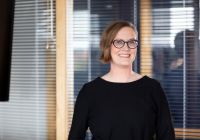
Tuija Männistö, MD, PhD
Tuija Männistö, MD, PhD, works as a professor of clinical chemistry at the Institute of Clinical Medicine, University of Eastern Finland, and as chief physician of clinical chemistry at the Joint County Authority for Islab Laboratories. She also works part-time as a senior researcher at the Translational Medicine Research Unit at the University of Oulu. She is a specialist in clinical chemistry with an interest in preanalytics and women’s health. Her research interests focus on chronic diseases during pregnancy, particularly thyroid disease during pregnancy, and the effect of pregnancy on chronic diseases during the life-course.
Session(s):
Development & Improvement track: Improved diagnostics and new tests - Thursday 19th September 08:30-10:00
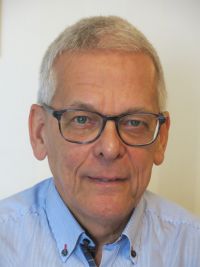
Herman Nilsson-Ehle, MD, PhD
Herman Nilsson-Ehle: Hematologist in Gothenburg, Sweden, since the beginning of the 1980s. Initial research and thesis included hematological changes in the elderly, based on longitudinal studies of representative population samples from age 70 to 88. Reference intervals for hemoglobin, iron- , B12 /folate variables, not least in ”healthy” subgroups, were defined. Intraindividual longitudinal changes were calculated. Subjects with abnormal values were subject to detailed re-investigations including bone marrow sample, gastroduodenoscopy (for low S-B12). This research was in collaboration with clinical chemistry, pathology, gastroenterology, gerontology and biostatistics. In those days, both cobalamin and folate concentrations were analysed with microbiological methods. This research on elderly population samples was continued by a PhD student, Catharina Lewerin, who defended her thesis in 2006. Later, HN-E focused on malignant hematology, but has published text book chapters and a number of guidelines on investigation and treatment of deficiency of vitamin B12 , folate and iron. The regional guidelines for investigation of B12 and folate deficiency including possible underlying disorders are now being revised. The first test is P-homocysteine; if the level is ”high”, vitamin concentrations are determined. S-methylmalonic acid (S-MMA) is analysed if S-B12 falls within the grey zone. The present radioassay for (total) S-B12 has, however, an unacceptably low performance regarding sensitivity and specificity. S-B12 will therefore be replaced by S-holo-TC, the biologically available fraction of cobalamins. Thereby, the need for S-MMA will diminish. Improved diagnosis of cobalamin deficiency as such, as well as o fits cause is important in view of the large number of risk groups of today: e.g. elderly, autoimmunity, atrophic gastritis, previous surgery for obesitas, certain chronic medications, vegan habits (not least during pregnancy) dementia, and laughing gas abuse.
Session(s):
New aspects on Vitamin B12 and folate deficiency and the toxic effect of laughing gas - Thursday 19th September 07:30-08:15
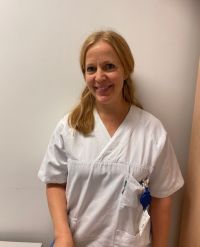
Ragnhild V. Nome, MD PhD
Ragnhild V. Nome is a Consultant at Department of Medical Biochemistry, Oslo University Hospital. During my medical studies, I worked at Department of Tumor Biology, a research lab focusing on metastatic disease. I was treating cancer cell lines with radiation and anticancer drugs and analysed changes in expression of cell cycle-related pathways. In my PhD, I focused on biochemical late effects after chemotherapy. After PhD, my focus has switched to liquid biopsy and circulating tumor-DNA. My aim is to contribute to knowledge transfer from research lab to routine diagnostics by implementing liquid biopsy in our department and serve the tertiary cancer center at our institution. Recently, I’ve been participating in a task force focusing on quality improval of the most central tumor markers reported from Norwegian laboratories.
Session(s):
Serum biomarkers for diagnosing cancer – where do we stand today? - Wednesday 18th September 10:30-11:00
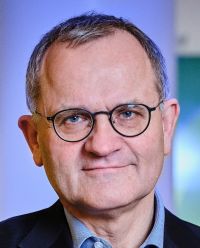
Børge G. Nordestgaard, Professor MD, DMSc
Professor & Chief Physician, Copenhagen University Hospital, University of Copenhagen, Denmark
President-Elect European Atherosclerosis Society
Prof Nordestgaard studied and worked in Copenhagen, New York, and London.
Prof. Nordestgaard has for more than 30 years continued his interest in the pathogenesis, diagnosis and treatment of familial hypercholesterolemia, hyperlipidemia, lipoprotein(a), atherosclerosis, diabetes and cardiovascular disease, and has written extensively on these conditions.
He is chairing the Copenhagen General Population Study and is a steering committee member of the Copenhagen City Heart Study and five phase 3 cardiovascular intervention trials.
Prof. Nordestgaard has supervised 74 Ph.D. students and 34 postdoctoral fellows, and has published 950 original articles and 150 reviews, book chapters, consensus statements, & editorials. His H-index is 160 in Web of Science and he is listed among the top 0.1% researchers worldwide with the most highly cited papers.
Original articles include publications in New England Journal of Medicine, Lancet, Journal of the American Medical Association, Nature, Science, Nature Genetics, British Medical Journal, Lancet Diabetes Endocrinology, Circulation, European Heart Journal, Journal of the American College of Cardiology and JAMA cardiology.
Session(s):
Plenary session on Cardiovascular disease: Lipid profile and cardiovascular disease - Tuesday 17th September 12:45-13:30
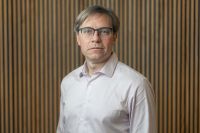
Mads Nybo, MD, PhD, Specialist in Clinical Biochemistry
Mads Nybo is Chief Physician at Department of Clinical Biochemistry at Odense University Hospital, including counseling, research and education. An important part of this is the preanalytical area, including test management, transportation from GP’s and rational diagnostics. He is also President of the Danish Society of Clinical Biochemistry.
As Associate Professor, Dr Nybo is involved in research on biomarkers for cardiovascular diseases, haemostasis and on preanalytical aspects. He is member of the European Working Group on Preanalytical Issues under the European Federation of Laboratory Medicine and Chairman of the NFKK-based Nordic WG on Preanalytical issues.
Session(s):
Session by NFKK: Recommendations from The Nordic preanalytical scientific working group - Tuesday 17th September 15:45-17:15
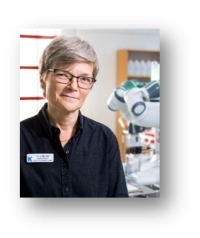
Lena Nyman, Biomed lab scientist
Lena is a chemical engineer and a biomedical analyst who has worked above all, within healthcare laboratories for over 40 years I various roles.
Her professional career within healthcare began at primary care laboratories for 10 years of which the last 2 years as responsible for introducing a new laboratory information system at 20 primary care laboratories. Lena has been responsible for different projects within IT and automation until she became head of the Preanalytical unit at clinical chemistry.
Lena has been responsible for a project concerning implementing the first collaborative robot at Karolinska Hospital 2019. Since then, Lena has continued this work and also been in charge of Karolinska University Hospitals contribution to an European project aimed at developing a robotic solution for a very repetitive and manual process within the laboratory.
Session(s):
Development & Improvement track
The future of laboratories: trends, challenges and opportunities - Friday 20th September 08:30-10:00
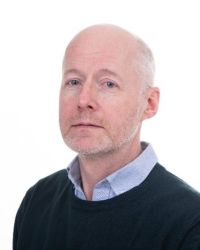
Jacob Odeberg, Professor, MD, PhD
Jacob Odeberg is professor in Clinically Applied Proteomics at KTH/SciLifeLab Stockholm with parallel position as professor in Medicine (Hematology) at the Arctic University of Tromsö, Norway. He received his M.sci. in Chemical Engineering (KTH) in 1990, PhD in Biochemistry (KTH) 1998, and a Medical Degree (Karolinska Institutet) in 2002. He did his clinical training and residency at Karolinska university Hospital 2002-2012. He is specialist in Internal Medicine, Hematology, and Acute Medicine, with part time clinical position as senior physician at University Hospital North Norway (UNN) and in the Coagulation Unit, Department of Hematology, Karolinska University Hospital Stockholm.
He established his own research group over 20 years ago, and is since 2012 located at SciLifeLab Stockholm. He is the author >100 peer reviewed scientific publications. His research is focused on identification and functional characterisation of novel plasma biomarkers for diagnosis and/or risk prediction of venous thromboembolism, using a translational approach, including employing different proteomics techniques. Since 2005 he serves as a board member of the Kempe Foundation (Sweden).
Session(s):
Laboratory and cancer associated thrombosis (CAT) - where we are - Thursday 19th September 13:45-15:15

Paolo Parini, Professor, MD, PhD
Paolo Parini was born in Rimini, Italy, in 1964. He earned his MD in 1990 and specialized in Gastroenterology and Hepatology in 1994 at the Universita’ di Bologna. He completed his PhD at Karolinska Institutet in 1999. Since then, his research has focused on lipoprotein metabolism. He has held various roles at Karolinska Institutet and was Director of the Division of Clinical Chemistry (2010-2016). In 2011, he specialized in Clinical Chemistry and became a full professor in 2012. Parini is also a Director of Research, Education, Development & Innovation at Karolinska University Hospital since 2017 and received the 2024 Nikkilä Memorial Lecture Award.
Session(s):
Precision medicine: dream or reality? - Thursday 19th September 15:45-17:15
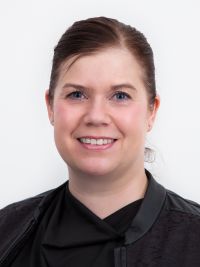
Joanna Pelanti Ms.Sci (tech), clinical biochemist
Jonna Pelanti has a master of science in technology degree from Helsinki University of Technology and a clinical biochemist degree from Helsinki University faculty of medicine. After gaining almost ten years of experience working in different laboratories she joined Labquality, a Finnish service company focused on quality assessment to medical laboratories and point of care testing, 14 years ago and she now holds the position of Director in EQA solutions.
Jonna is interested in external laboratory medicine in general and as a science. She finds that it is important to work towards correct results in laboratory medicine through co-operation between EQA-providers, customers and relevant groups, institutions and organisations. Developing new kinds of products for end-to-end quality assessment and especially for the preanalytical phase is one of her key interests. She is fascinated with developing external quality assessment and eventually patient safety through professional utilization of modern digital solutions. PhD thesis ongoing on ”Improving diagnostic testing quality by meaningful data mining” at Helsinki University Faculty of Medicine.
Jonna Pelanti is a board member of the Finnish society of clinical chemistry, a member of the Nordic preanalytical working group and a corresponding member in the IFCC Task Force on Global Lab Quality.
Session(s):
Session by NFKK: Recommendations from The Nordic preanalytical scientific working group - Tuesday 17th September 15:45-17:15
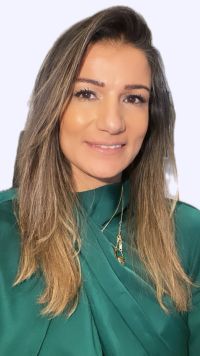
Maysae Quttineh, president of IBL ( Swedish Institute of Biomedical Laboratory Science)
I started my career as biomedical laboratory scientist in the field of molecular biology just when PCR became the thing in the detection of microorganisms. My engagement in work has always been related to quality assurance and quality improvement. After 14 years in the laboratory medicine field I got the opportunity to work as a development leader in patient safety on a regional level in Jönköping county council. Had the opportunity to work with great leaders that inspired me to apply for management.
Quality improvement became more of a passion and specially in the field of risk management, adverse event reporting and safety culture. Today I work as operating manager for the primary care laboratories in Jönköping county.
Session(s):
Session by Institutet för biomedicinsk laboratorievetenskap - Wednesday 18th September 13:45-15:15
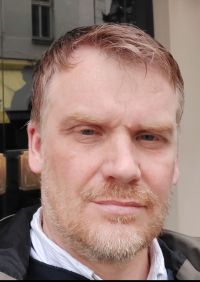
Henrik Ryberg, Associate professor, PhD
Henrik Ryberg has worked with clinical mass spectrometric applications since 2000. The early work was in the field of biomarkers for neurodegeneration. From 2009 Dr Ryberg has worked as principal chemist at Clinical Chemistry Department at Sahlgrenska University Hospital. Dr Ryberg was 2023 appointed Associated Professor at Salgrenska Academy. Much effort has been spent on expanding the hospital mass spectrometry lab from the initial two LCMS and three GCMS instruments to the current 14 instruments. Among current tasks include the role as process leader for the hospital mass spectrometry lab with a special focus on endogenous metabolites and hormones. Within this role a number of in-house applications have been developed to better utilize the power of mass spectrometry to benefit patients and to create cutting-edge clinical assays as well as research assays. In the field of mass spectrometry based steroid hormone assays, a GC-MS/MS research assay focused primarily on tissue applications, and a 2D-LC-MS/MS assay for the measurement of steroid hormones in human plasma/serum have been developed and validated.
Session(s):
Session by the Swedish Association of Clinical Biochemists - Clinical importance of measurements of low levels of sex hormones- Thursday 19th September 08:30-10:00
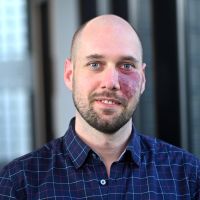
Bob Schadenberg, PhD
Bob Schadenberg is a senior researcher at the Human-Media Interaction group at the University of Twente, Netherlands. His work centres on leveraging robots to support workers in the healthcare sector and refining human-robot interactions. Bob's research focuses on developing non-humanlike communication methods for robots, using sound, light, and motion to convey complex information effectively. He evaluates how these communication modes are perceived by people and their impact on people’s social perceptions of robots. Dr. Schadenberg has contributed to two European projects aimed at developing robotic solutions for healthcare professionals, enhancing their social capabilities and integration in the workflow.
Session(s):
Development & Improvement track: The future of laboratories: trends, challenges and opportunities - Friday 20th September 08:30-10:00
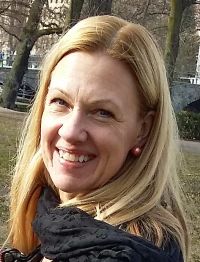
Sophia Schedin Weiss, PhD
Sophia Schedin Weiss is a Group Leader at the Division of Neurogeriatrics, Department of Neurobiology, Care Sciences and Society, Karolinska Institutet, Stockholm, Sweden. She studied biochemistry at Stockholm University and defended her PhD thesis titled “Lipid metabolism in Niemann Pick type C disease” at Stockholm University in 1998. She did a postdoc at the Swedish University of Agricultural Sciences, Uppsala, specializing in protein-glycan and protein-protein interactions. She was appointed assistant professor at Uppsala University in 2004 and obtained her “docentur” in medical biochemistry in 2008. She moved to Karolinska Institutet in 2010, where her research goal is to elucidate early pathophysiological alterations in Alzheimer disease and other neurodegenerative disorders. This research is crucial for finding early biomarkers and understanding disease mechanisms. Currently, her main research topics are to identify and validate glycan biomarkers, study subcellular mechanisms using super-resolution microscopy, and to elucidate the link between protein glycosylation and pathogenic mechanisms in neurodegenerative diseases.
Sessions(s):
Blood biomarkers - A new era for diagnosing Alzheimer disease?- Thursday 19th September 13:45-15:15

Nida Soutari, BSc
My name is Nida Soutari, and I hold a Bachelor of Science degree in Organic and Physical Chemistry.
I have worked, and continue to work, as a biomedical scientist in the Special Coagulation Unit of the Clinical Chemistry Laboratory at Karolinska University Hospital in Solna.
I am also affiliated with the Clinical Chemistry and Blood Coagulation Research Group in the Department of Molecular Medicine and Surgery at Karolinska Institute.
Additionally, I am engaged in teaching medical students, focusing on essential areas of basic clinical diagnostics and emphasizing diagnostic methods in Clinical Chemistry.
Sessions(s):
Development & Improvement track: Career and competence in laboratory medicine: challenges, trends and best practices- Friday 20th September 08:30-10:00
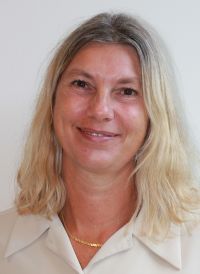
Helena Stenling, Enhetschef Klinisk kemi 24 Sju, Norrtälje
Helena has worked in clinical chemistry laboratory since 2007. First as a laboratory engineer in Region Kalmar and then as manager. Since 2021, Helena works at Clinical Chemistry 24Sju at Norrtälje Hospital. Before she started there, a project had been started to come up with a solution to the problems that existed to cover the staffing at night, a proposal that includes another occupational category, support from colleagues from other labs and to take advantage of the technical solutions that exist. Helena will tell you more about this project.
Sessions(s):
Development & Improvement track: Career and competence in laboratory medicine: challenges, trends and best practices- Friday 20th September 08:30-10:00
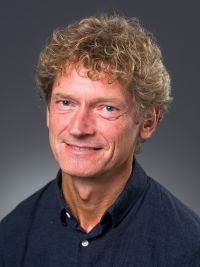
Ketil Størdal, Professor, PhD
Ketil Størdal is a full professor in pediatrics at the University of Oslo, Norway. He is also working as a consultant pediatrician at Oslo University Hospital, after specialist training in general pediatrics and pediatric gastroenterology.
His main research area is the epidemiology of autoimmune diseases in children, with special interest in celiac disease. Global child health is another field of interest after working with neonatal health and gastroenterology in low/middle-income countries. For several years he has been teaching at the University of Oslo, London School of Hygiene and Tropical Medicine, and University of Botswana.
Prof Størdal is a member of ESPGHAN since 2004 and of the specialist interest group in celiac disease since 2017, currently in the executive committee. He is also a member of the executive committee of the European Academy of Pediatrics, serving as President of the Secondary and Tertiary Care Council. Prof Størdal is the national spokesperson for Choosing Wisely Norway in the Norwegian Medical Association, and past president of the Norwegian Paediatric Association.
Sessions(s):
Session by Svensk Förening för Klinisk Kemi -Using labs wisely – laboratory medicine in an era of choosing wisely- Friday 20th September 08:30-10:00
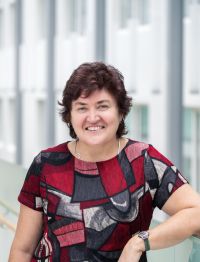
Anu Tamm, PhD
Anu Tamm is the head the United Laboratories of Tartu University Hospital. She obtained her PhD in immunology in Hannover Medical School, Germany and since then has been employed in the United Laboratories. She has a long-time experience in the management of the laboratory as well as in implementing new information systems into the laboratory routine and establishing electronic order and report of lab tests in the hospital. In the Estonian Society for Laboratory Medicine (ESLM), she has guided a working group, which created a local standardized database of laboratory tests performed in Estonia and admitted LOINC codes to all of them. She is currently chairman of the board of ESLM.
Sessions(s):
Session by BALM- Thursday 19th September 15:45-17:15
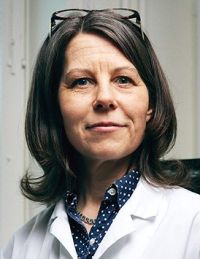
Åsa M. Wheelock, PhD
Åsa Wheelock performed her PhD in Pharmacology and Toxicology at the University of California Davis in the field of respiratory proteomics, followed by postdoctoral studies in bioinformatics at the KEGG laboratories at Kyoto University, Japan. Dr. Wheelock is heading the Pulmonomics lab and Respiratory Medicine Unit at the Department of Medicine Solna, Karolinska Institutet. Her lab has dedicated the past 18 years to developing a systems medicine framework for investigating obstructive lung diseases using multi-omics characterizations, with the aim of molecular sub-grouping of respiratory umbrella diagnoses such as asthma, COPD and post-COVID. Her team devotes equal efforts to developing methods for proteome characterizations of scarce clinical materials and associated bioinformatics and network integration tools, and application of these frameworks to clinical cohorts including the Karolinska COSMIC cohort for investigating sex differences in smoking -associated COPD (https://clinicaltrials.gov/study/NCT02627872), the LUNAPRE cohort for investigation preterm-birth associated obstructive lung disease (https://clinicaltrials.gov/study/NCT02923648), BRONCHO-SCAPIS for investigating COPD in never-smokers (https://clinicaltrials.gov/study/NCT03049202 ), the HemCOV cohort for investigating post-COVID with persistant respiratoy involvement (https://clinicaltrials.gov/study/NCT05894616 ) and the U-BIOPRED cohort for investigating severe asthma (https://europeanlung.org/en/projects-and-campaigns/past-projects/u-biopred/).
Sessions(s):
Precision medicine: dream or reality? - Thursday 19th September 15:45-17:15
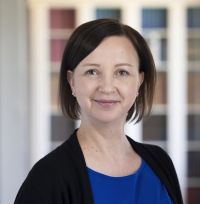
Saara Wittfooth, Assistant Professor, PhD
Dr. Saara Wittfooth is Assistant Professor of Biotechnology at the Department of Life Technologies, the University of Turku, Finland. She is the leader of the cardiovascular disease diagnostics research of the Department. She received her PhD in molecular biotechnology and diagnostics in 2009. In 2017 she conducted research at Boston Children’s Hospital as a visiting Fulbright Senior Scholar and in the spring of 2024 at Swedish Collegium of Advanced Study / Uppsala University Biomedical Center as a as a Visiting Fellow.
Her research activities have been related to the development of highly sensitive immunoassays for biomarkers of various diseases and nucleic acid tests for pathogen detection. In the focus of her research interests are novel cardiac biomarkers, such as long forms of cardiac troponin T, free PAPP-A and cardiac troponin autoantibodies / macrotroponin, and development of innovative highly sensitive immunoassays for the detection of these molecules. In 2019 she received the EFLM Cardiac Marker Award for remarkable scientific work in the field of cardiovascular diseases.
Sessions(s):
Development & Improvement track
Improved diagnostics and new tests - Thursday 19th September 08:30-10:00
